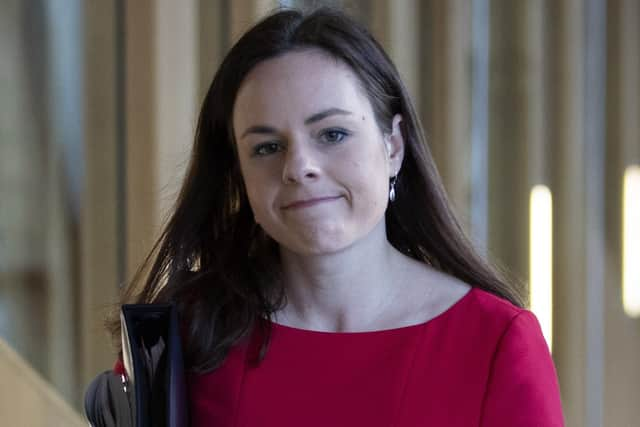Financial statistics twist in the winds of constitutional outrage - Gina Davidson
The figures, which show Scotland’s tax revenue compared to public spending, may once have been nothing more than a piece of annual accountancy, but now they are imbued with evidence for, or against, independence.
Sedate, numerical columns of book-keeping have become supercharged as a vehicle for constitutional outrage.
Advertisement
Hide AdAdvertisement
Hide AdIndeed, if the hot air expended in the discussions by nationalists and unionists about just what the figures tell us could be usefully harnessed, we might reach net zero by next year.


Still, politics aside, the economic health of the nation is not great. The deficit, as notional as it may be, has doubled in the past year given the massive increase in public spending, and now stands at 22.4 per cent of Scotland’s GDP. The UK’s deficit is 14.2 per cent.
Tax take is also, unsurprisingly given the year, well down. Oil and gas revenues plummeted – and so Scotland’s GDP fell by 10 per cent over the year compared to the UK’s 6 per cent – and now cannot be relied upon in any shape or form given the desire to stop the public’s future dependence on fossil fuels.
Overall the picture for the Scottish economy is one that has stalled as expected during the pandemic. But it comes on top of years of lacklustre economic growth; a problem to which the First Minister and her Cabinet colleagues have yet to find a solution.
The Institute of Fiscal Studies has suggested Scotland’s deficit may fall to 9 per cent by 2025 – but that is two years after Nicola Sturgeon has said she wants a second referendum to be held.
Finance secretary Kate Forbes was non-committal about such a timescale, saying only the pandemic had to be over. In public health terms it might well be by 2023, but the economic impact will still be felt.
The SNP has so far failed to produce a new economic prospectus for an independent Scotland. The GERS figures still ensure the clamour for such – from both sides of the constitutional debate – will only grow louder.
A message from the Editor:Thank you for reading this article. We're more reliant on your support than ever as the shift in consumer habits brought about by Coronavirus impacts our advertisers.
If you haven't already, please consider supporting our trusted, fact-checked journalism by taking out a digital subscription.
Comments
Want to join the conversation? Please or to comment on this article.
